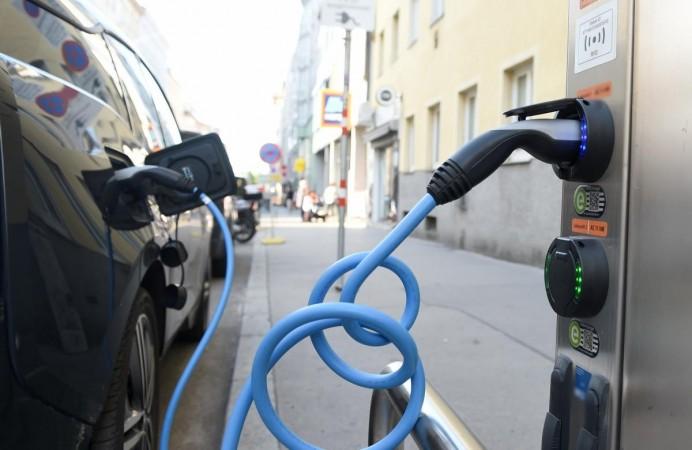
In a significant development for India's automotive sector, the market share of electric passenger vehicles (EVs) surpassed the 4 percent threshold in May 2025. This marks a notable increase from 2.6 percent in the same month the previous year, highlighting the growing acceptance of electric cars among Indian consumers. The data, compiled by the Federation of Automobile Dealers Associations (FADA), underscores a positive trend in the adoption of electric vehicles, with the share of electric passenger sales in May also 0.5 percentage points higher than the 3.5 percent share recorded in April.
India’s EV Revolution Just Got a Turbo Boost!
— Rupeezy (@RupeezyOfficial) June 6, 2025
The govt has launched a powerful new EV scheme to attract global electric carmakers — but it’s not a free ride.
Think: 15% import duty, limited quota, and heavy localisation demands. ?⚙️
? Here’s what’s inside:
✅ ₹4,150 Cr min.… pic.twitter.com/MCLfRgmo6O
The retail figures reveal that 12,304 electric cars were sold in May, a substantial rise from the 8,029 units sold in May 2024. This upward trajectory is further evidenced by the sales figures from April 2025, which stood at 12,233 units. FADA CEO Saharsh Damani commented, "This is an important milestone in our industry's journey towards electrification. This growth has been driven by improvements in battery technology, better range, and lower costs compared to earlier electric PV models."
Tata Motors has maintained its leadership position in the electric car segment, selling 4,351 units in May. Its closest competitor, JSW MG Motor, reported a remarkable year-on-year surge of 149 percent, selling 3,765 electric cars. Mahindra & Mahindra ranked third with 2,632 units sold during the month. Collectively, these top three companies account for over 87 percent of total sales in the segment, according to FADA figures.
Government Initiatives and Global Challenges
Despite the positive growth, the electric vehicle market in India faces significant challenges. FADA projects that global supply-chain headwinds, including rare-earth constraints in EV components and geopolitical tensions, may limit urban consumer sentiment and exert cost pressure. China, the dominant supplier of rare earth magnets—a critical component for electric vehicles—has begun imposing restrictions on exports, potentially posing supply chain problems. Damani warned, "If the supply situation for rare earth materials doesn't improve, we could see production slowdowns that may impact retail sales in the near future."
In response to these challenges, the Indian government has taken proactive steps to encourage global manufacturers to invest in the electric car segment. On June 8, 2025, the government notified guidelines for a forward-looking scheme aimed at promoting India as a global manufacturing hub for electric vehicles. To attract global manufacturers, such as US tech giant Tesla, the scheme allows approved applicants to import completely built-in units (CBUs) of electric four-wheelers with a minimum CIF (cost insurance and freight value) of $35,000 at a reduced customs duty of 15 percent for five years from the date of application approval.
Approved applicants are required to make a minimum investment of Rs 4,150 crore in line with the scheme's provisions. The maximum number of electric four-wheelers allowed to be imported at the reduced duty rate is capped at 8,000 units per year, with the carryover of unutilized annual import limits permitted. This initiative is part of a broader strategy to position India as a leader in the global electric vehicle market.
Supply Chain Disruptions and Innovation
The Indian government's efforts to promote the electric vehicle industry are timely, given the global context of supply chain disruptions. China's restrictions on rare earth exports have raised alarms for global automakers, with many companies scrambling to secure alternative sources of these critical materials. Rare earth minerals, comprising 17 elements in the periodic table, are vital to modern technology, with applications spanning multiple industries, including automotive, defense, and electronics. The lack of immediate alternatives to China's production and refining capabilities exacerbates the crisis, as no other country can match China's output in the short term.
In response to these challenges, research into alternative materials that can replicate the properties of rare earths is crucial. Developing magnets that use less or no rare earths could reduce dependency on these materials. Collaborative efforts between academia, industry, and governments are essential to drive breakthroughs in material science and ensure the sustainability of the electric vehicle industry.
Historically, the automotive industry has faced similar challenges related to supply chain disruptions and geopolitical tensions. For instance, during the oil crises of the 1970s, automakers were forced to innovate and develop more fuel-efficient vehicles in response to rising fuel prices and supply constraints. Similarly, the current situation presents an opportunity for the electric vehicle industry to innovate and develop new technologies that reduce reliance on rare earth materials.
The growth of the electric vehicle market in India is a testament to the country's commitment to green mobility and sustainable development. While challenges remain, particularly in the form of supply chain disruptions and geopolitical tensions, the Indian government's proactive measures and the industry's resilience offer hope for a sustainable future. As the world continues to grapple with the complexities of global supply chains, India's electric vehicle market stands as a beacon of progress and innovation in the transition to a greener, more sustainable future.

















